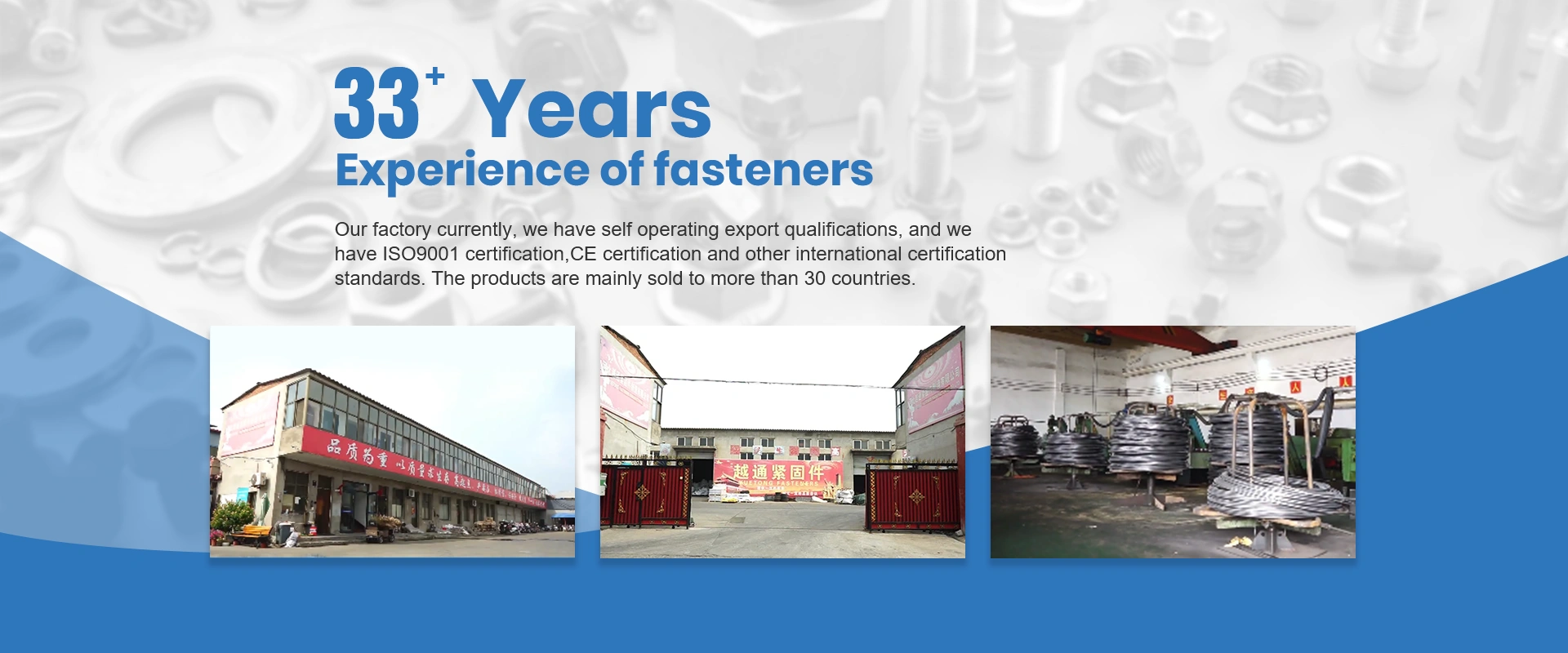दिसम्बर . 26, 2024 06:41 Back to list
what screws do you use for metal studs
What Screws Do You Use for Metal Studs?
When it comes to constructing interior walls using metal studs, one of the most critical aspects to consider is the type of screws utilized in the assembly. The choice of screws can greatly affect the durability, strength, and overall functionality of the walls. This article aims to provide clarity on what screws are best suited for metal studs, along with some tips on how to use them effectively.
Understanding Metal Studs
Metal studs are typically made from galvanized steel and are commonly used in commercial construction, but they are also gaining popularity in residential applications due to their strength, fire resistance, and ease of installation. Unlike traditional wooden studs, metal studs provide uniformity and precision. However, to ensure a successful build, choosing the right screws is paramount.
Types of Screws for Metal Studs
1. Drywall Screws These screws are specifically designed for attaching drywall to metal studs. They often feature a bugle head, which allows them to sit flush with the drywall surface. It's essential to select drywall screws that are at least 1-1/4 inches long, as they need to penetrate deep enough into the metal stud to secure the drywall effectively.
2. Self-Drilling Screws Also known as self-tapping screws, these come with a pointed end that allows them to drill into the metal without requiring a pre-drilled hole. Self-drilling screws are ideal for quick installation and are commonly used in framing applications. When selecting self-drilling screws, ensure they have a fine or coarse thread, depending on the specific requirements of your project.
3. Sheet Metal Screws If you need to connect pieces of metal track or frame, sheet metal screws are an excellent choice. They are designed to fasten sheets of metal together and are available with different head styles and coatings for added protection against corrosion.
4. Lag Screws For heavier applications or when additional strength is needed, lag screws can be utilized. These screws are larger in diameter and provide a better grip in metal. It's crucial, however, to ensure that the metal stud being used can support the weight and stress of the installation.
what screws do you use for metal studs

Advantages of Using the Right Screws
Using screws specifically designed for metal studs can lead to a more effective and efficient building process. Here are several key advantages
- Enhanced Stability Proper screws promote better joint strength and stability, which is vital in maintaining the integrity of the walls. - Time Efficiency Self-drilling screws eliminate the need for pre-drilling, significantly reducing installation time. - Reduced Risk of Damage Using screws designed for metal studs minimizes the risk of stripping or damaging the studs, which can occur when using inappropriate fasteners.
Installation Tips
To ensure a successful installation with minimal issues, follow these tips
- Pilot Holes When using thicker metal studs, consider drilling pilot holes for your screws to avoid any risk of bending or breaking. - Use the Right Drill Bit For self-drilling screws, ensure the drill bit is compatible with the gauge of the screws. A mismatch can lead to stripped heads or ineffective fastening. - Avoid Over-tightening When driving screws, it’s important not to over-tighten them as this could deform the metal stud or damage the drywall, leading to potential cracks or indentations.
Conclusion
Choosing the right screws for metal studs plays a crucial role in the overall success of your construction project. Whether you're hanging drywall, framing a wall, or joining metal components, using the correct fasteners will ensure durability, efficiency, and a high-quality finish. By understanding the types of screws available and how to use them properly, you can confidently construct structures that stand the test of time. Always keep in mind the specific requirements of your project and consult with a professional if you're unsure about the best approach for your needs.


